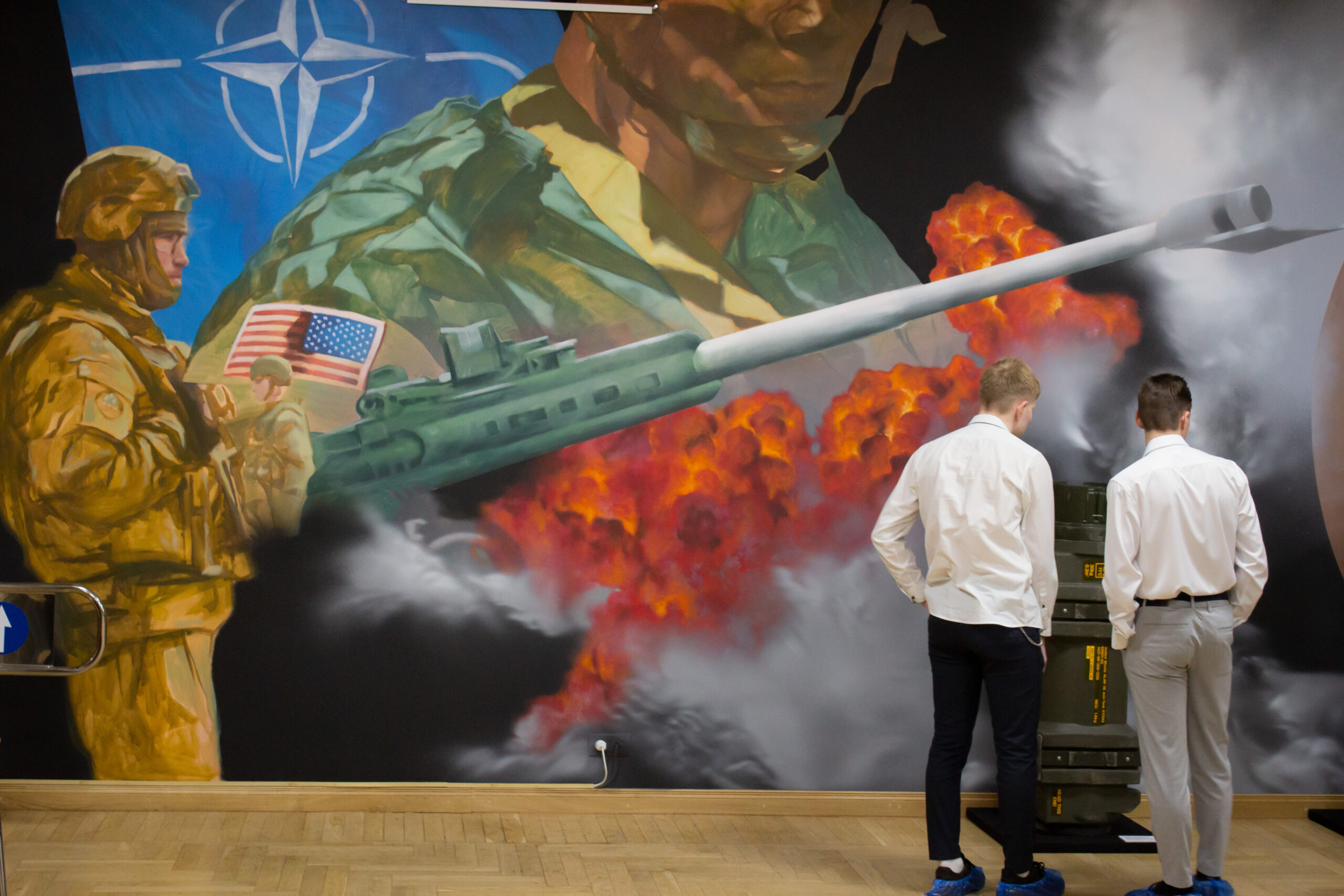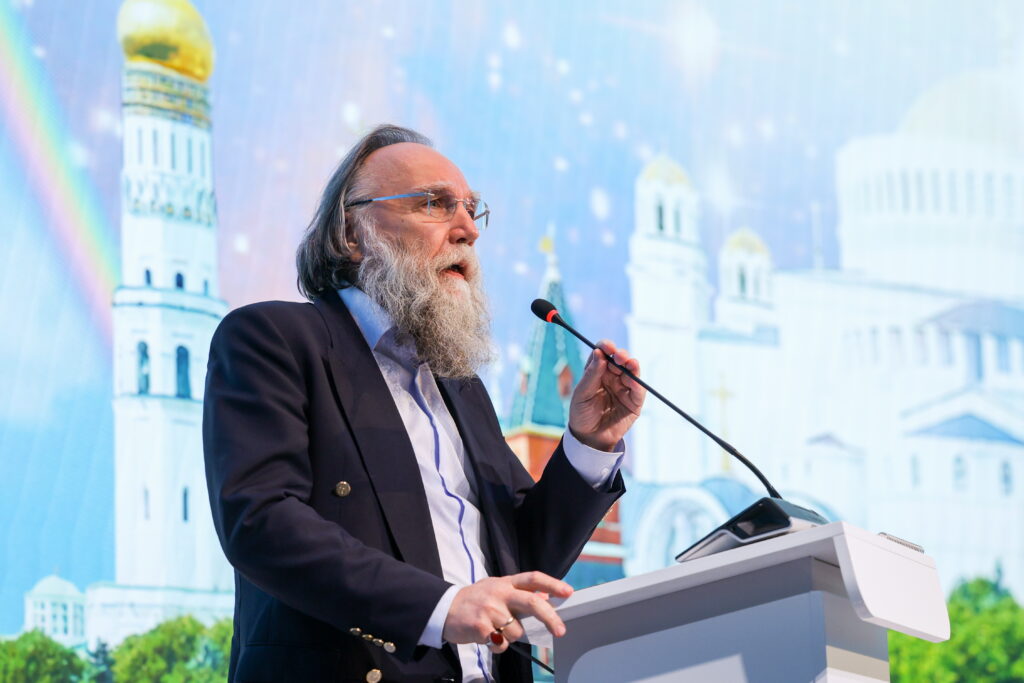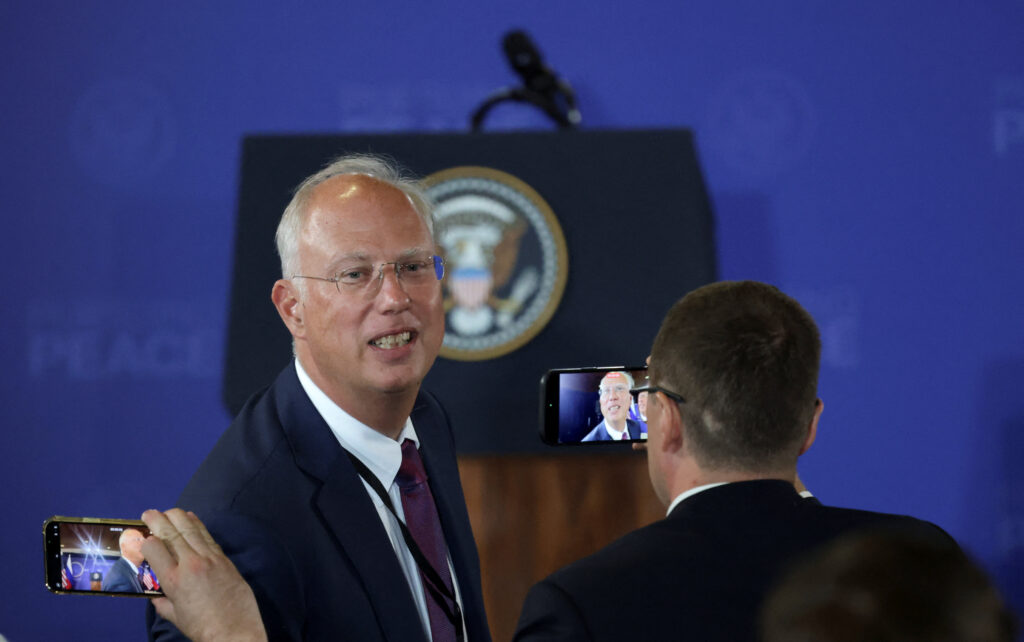State propaganda played a pivotal role in justifying the invasion of Ukraine to the Russian public. From the outset, the official line was to portray Russia as a ‘besieged fortress’ under attack from the West while downplaying the invasion as a limited ‘special military operation’; the Kremlin consistently reinforced this through a thick pro-regime media ecology. In this way, Russia’s state-controlled propagandists manufactured public support for the invasion among significant groups of the population.
After the launch of the invasion, both Russian independent media and Western governments invested major resources in diverse strategies to puncture this ‘disinformation bubble’. Many Russian independent media outlets were forced to leave the country, though they kept operating in exile. As people sought high-quality information beyond what censored state media could provide, a de facto ban on independent journalism increased rather than decreased the audiences of independent media. In parallel, major European newspapers started translating their reporting on the war into Russian to let the Russian public know the truth about the conflict. Meanwhile, the U.S. government invested funds into tech companies that provide Russians with free online tools to circumvent Kremlin online censorship. Both governments and private initiatives have been actively relying on targeted advertising to deliver credible information to the Russian public; activists have also set up platforms allowing international audiences to directly call or text Russian citizens to tell the truth about the war.
Yet these efforts have not been effective enough. Both Russian independent media and Western initiatives struggle to penetrate a thick pro-regime hybrid media ecology that encompasses both broadcast media and a wide variety of online media. News consumption is often driven by non-news ‘affordances’. For instance, users rely on news aggregators because they integrate many functions, such as access to email, search engines, weather forecasts, and a convenient way to get a sense of what is happening in the country by skimming headlines. Since news aggregators are the second most popular source of news after television — and their lists of news are censored by the government —information published by an independent or Western media outlet is unlikely to reach a broad audience without coming via news aggregators. Additionally, people rarely seek new sources of information; they generally prefer relying on familiar sources, either out of convenience or because they seek to avoid opinion-challenging information.
Besides difficulties in breaking through the pro-regime media ecology and convincing people to listen to information they may politically disagree with or consider a waste of time, the problem also lies in how scholars, journalists, and experts understand propaganda. Based on the notion that propaganda’s purpose is to deceive, both Russian independent media and Western initiatives have focused on providing credible information about the actual scale and consequences of the war to challenge propaganda narratives. As articulated by Simon Baugh, Chief Executive of the UK Government Communication Service, the fundamental principle underlying these efforts has been ‘using facts to expose the truth’.
Research suggests that authoritarian propaganda may be more effective in influencing how citizens perceive each other rather than political events. Instead of simply providing incorrect information, Russian state media often openly displays its own bias, making any efforts to uncover deception ineffective. By explicitly demonstrating its manipulative intent, it primes citizens to view information as a weapon. This leads to a range of detrimental effects that current fact-based counter-propaganda measures fail to address. When individuals perceive information as a weapon, they are more likely to dismiss sources of information that challenge their beliefs. When one is primed to think about media as a weapon, it is easier to project this idea onto others to explain frustrating disagreements away and give up on political talk. This perception of bias interrupts political conversations, both in terms of willingness to consume diverse political information in the media and in terms of interpersonal political discussions between supporters of the invasion and their significant others who might have changed their views, trapping citizens in their own political worlds and reinforcing pro-war.
Propaganda manipulates how citizens perceive each other
State propaganda played a crucial role in justifying the invasion of Ukraine in the eyes of the Russian public. However, the mechanisms underlying its effects cannot be reduced to mere persuasion. It also effectively manipulates citizens’ perceptions of others. Autocrats know how to manipulate people’s opinions about not only their leaders or specific political events but also each other. For example, targeted repressions evoke anger among citizens towards those who remain unaffected by such measures. Repressions intensify mutual animosity and prevent the possibility of empathy and collective action against the autocrat. As thousands were detained and hundreds face criminal persecution, anti-war Russians have legitimate reasons to feel anger towards those who support the invasion.
While violence alone is enough to foster animosity, the Kremlin effectively complements it with the portrayal of an overwhelming majority in support of Putin, altering Russians’ perception of the prevailing societal mood. Over the past 10 years, Russian television propaganda has been actively relying on ‘wedge issues’ — matters that are not central to key political cleavages — to artificially create divisions among citizens. While ethnicity, religion, or sexuality are important political issues, they were not perceived as central by the Russian public before propaganda mobilized them to construct the image of a healthy ‘Putin’s majority’ opposed to a deviant oppositional minority.
Abundant evidence suggests that this ‘divide and rule’ strategy is effective. The televised portrayal of an overwhelming majority supporting Putin’s policies intimidates certain citizens, leading them to falsify their support for the regime instead of altering their actual opinions. Believing that support for the regime is more pervasive in society than it truly is, other citizens may modify their beliefs, as they view others as examples of socially accepted behaviour. While some individuals in authoritarian contexts tend to respond to pollsters’ questions based on what they perceive the government wants from them, list experiments — a technique employed by social scientists to identify ‘socially desirable’ responses — indicate that other citizens can genuinely change their beliefs in line with what they perceive as the majority’s opinion.
Beyond Deception
Propaganda manipulates citizens’ perception of propaganda itself, both within the media and in terms of its impact on their fellow citizens. Russian state media frequently exhibits bias, not only their opponents’ bias but also their own biases and media bias in general. For instance, they actively accuse independent sources of disseminating disinformation to discredit them. Such accusations can be as detrimental as untrustworthy information itself, as they have the potential to confuse citizens, impair their ability to discern reliable information, and erode overall trust in the media. When individuals become aware of the possibility that the information they consume may be unreliable, this notion raises the threshold of subjective evidence required to deem information as credible. Given that most people are not active news consumers who actively seek additional evidence, this tendency leads to a conservative evaluation of credibility, resulting in a greater inclination to label items as false, irrespective of their actual truthfulness. Capitalizing on this inclination, Russian state media openly exhibits its own bias. While television news programs and state-controlled online news outlets may maintain the facade of objectivity by employing neutral language and attributing sources, influential Russian propagandists perceive journalism as an extension of state policies. They regard all media as representing specific political interests, rendering pretences of objectivity unnecessary.
Paradoxically, openly demonstrating bias can serve as an effective political strategy that reinforces, rather than undermines, the impact of propaganda. While unconvincing propaganda may fail to persuade, it can foster a sense of political cynicism. Observing the manipulation of media, citizens may conclude that democratic politics is unattainable, rendering collective action futile. Additionally, it can intimidate citizens by highlighting the vast resources and control the autocrat possesses over the information sphere. Witnessing the substantial investment the government allocates to propaganda, individuals may perceive the government as overwhelmingly powerful, discouraging resistance. Moreover, overtly displayed bias also shapes citizens’ perceptions of political opponents, both on a political and interpersonal level. When citizens perceive the media landscape as saturated with propaganda, they are more likely to assume that fellow citizens also subscribe to such propaganda and are unlikely to participate in protests, thus rendering collective action as something that appears too perilous.
Propaganda silences conversations across political lines
The perception of bias can fracture conversations along political fault lines, discouraging individuals from engaging with those who hold differing views and consuming information from sources that do not align with their own political beliefs. Such perception of bias can effectively silence interpersonal dialogues spanning political divisions. People tend to view their own reasoning as rational while attributing opponents’ reasoning to emotions and the media. This tendency can lead to the perception that others are being manipulated, resulting in conversations being deemed futile and abandoned. In Russia, propaganda has contributed to the emergence of a ‘disconnective society’ by creating divisions between individuals and isolating those who support the war from those who might have otherwise been swayed to change their opinions.
A study conducted by the Public Sociology Laboratory, based on nearly two hundred in-depth interviews with Russians spanning a spectrum of views ranging from active support to active criticism of the invasion collected in the first four months of the war, reveals the significant role played by the perception of others as manipulated in silencing political conversations. Contrary to conventional belief, researchers discovered that very few individuals blindly believed state media, even among those who supported the invasion. While supporters and opponents of the invasion held different opinions on the moral justifiability of manipulation, a majority agreed that state media manipulated citizens’ perception of the war. Simultaneously, the interviewees observed how political conversations had been disappearing. Following initial failed attempts to persuade one another, most respondents began to view such conversations as futile, consequently avoiding political discussions or severing ties with friends and family who hold different views. Unsurprisingly, survey data indicates that those who support the invasion report that the majority of their friends and relatives share the same opinion.
After several months of the war, some respondents revealed that the mere thought of engaging in political conversations led them to anticipate and list the propaganda clichés their opponents might employ, ultimately dissuading them from pursuing such discussions. While the perception of others as manipulated did not outright silence conversations, it provided compelling justifications for individuals to avoid engaging in them. Propaganda, by making citizens aware of bias, offered them rationalisations to discontinue conversations across political fault lines.
However, the reluctance to engage in political conversations cannot be attributed solely to the futility of persuasion. Repressive actions, much like propaganda, significantly contribute to the fracturing of interpersonal political discussions. Throughout the first year of the war, supporters of the regime submitted hundreds of thousands of denunciations, reporting fellow citizens and spreading fear. Nevertheless, according to the narratives of the respondents, media influence emerged as an important justification for avoiding political conversations. Exposed to propaganda and unchallenged by others due to polarisation, those who support the war are likely to reinforce their own views.
Propaganda polarises media consumption
Similar to interpersonal conversations, the perception of bias also contributes to the polarization of media consumption. Studies indicate that individuals with contrasting yet deeply held opinions on a particular matter often perceive media coverage of the same topic as biased against their views. In turn, this polarisation can influence media consumption habits, leading individuals to avoid sources that challenge their beliefs.
Another study conducted by the Public Sociology Laboratory, based on in-depth interviews with Russians who do not oppose the war, examines the evolution of their perceptions over a span of nine months during the invasion and reveals a significant polarization in media consumption. Contrary to common belief, the researchers discovered that only a small number of individuals deliberately sought out media outlets that confirmed their existing beliefs. As the need for information about the events in Ukraine intensified and the bias of state media became evident, those who did not oppose the invasion attempted to access information from both state-controlled and independent media sources. Conflicting narratives, along with references to ‘fakes’ and ‘disinformation’ and the idea that any information is a weapon spread by state media, contributed to a sense of discomfort. Over time, this discomfort led less politically engaged respondents, who struggled to discern between reliable and biased information, to limit their exposure to political news or disengage from politics altogether. On the other hand, more politically engaged respondents, although often acknowledging the bias and unreliability of pro-regime sources, chose to rely on them due to their dissatisfaction with what they perceived as biased accounts of the war from independent media. Exposed to propaganda and lacking diverse perspectives from media outlets, these supporters of the war are more likely to reinforce their existing views.
Similar to authoritarian propaganda in other heavily controlled media systems, the Kremlin’s propaganda machine is more sophisticated than it seems. It not only disseminates inaccurate information but also exploits social relationships among individuals, influencing how citizens perceive one another, evaluate the chances that others will join collective action, and determine their willingness to engage in political conversations, whether through consuming information from different media or participating in interpersonal discussions with opponents. In this context, perceiving information as biased can be as detrimental as believing in biased information itself. As providing credible information about the invasion is not enough to change perceptions of the war, it is important to take into account the indirect effects of propaganda, while other goals, such as re-galvanizing social communication about the war and politics more generally, become more vital for the counter-propaganda effort.










